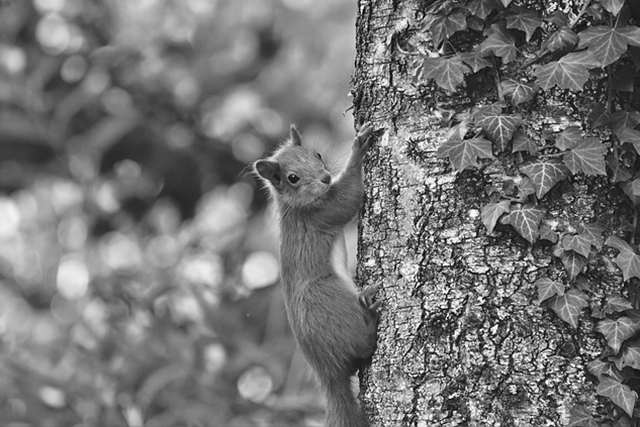Squirrel Removal Experts Know Your Attic is Infested by Squirrels.
Homeowners who hear sounds emanating from their walls, ceilings or attic space often have a squirrel infestation in their homes.
Getting rid of squirrels inside your home and keeping them out can be difficult, especially when you are unsure of what you should do and all of your efforts so far have not worked.
Squirrel prevention and control involves confirming the signs of a squirrel infestation, inspecting your roof and attic for entry and exit points and coming up with a plan to remove squirrels without harming them.
With the help of a squirrel removal experts, this can be done.
The squirrel population in Marietta, Kennesaw and their surrounding areas are high, which means if you hear a noise in your walls, ceiling or attic, it is probably a squirrel.
Attics are the perfect location for squirrels to reside in.
It offers a safe, dry and warm place for squirrels. Females often have litters during the winter.
If you hear any type of noise or see a squirrel in your home, you must call a squirrel removal experts for help.
Squirrels Create Fire
Squirrels love to chew on wires, including the electrical wiring in your home, which can result in an electrical fire.
More than 20,000 homes in America are burned down because of squirrels chewing on electrical
wiring.
When a wire is chewed through, the neutral and power wires can touch, which causes sparks.
These sparks can ignite attic insulation or other flammable materials located in the attic.
This risk of a fire is one of the main reasons squirrel control is so important.
What Do Squirrels Eat?
Squirrels will nibble on edible as well as non-edible items.
Squirrels eat tree buds, seeds, nuts, conifer cones and green vegetation.
Squirrels are constantly chewing on something to keep their teeth sharp and prevent them from becoming too long.
Squirrels enjoy climbing as well as skittering across flat surfaces, making your attic the perfect location for them to live. Your attic is also the perfect place for a squirrel to raise a litter of babies.
There are more than 200 different species of squirrels.
The gray squirrel and flying squirrel are the most common types of squirrels in Georgia. Let’s take a look at each type of squirrel and how you can determine which type of squirrel is living in your attic.
Gray squirrels are usually more active during the day. Therefore, if you hear noises more in the day than at night, your attic is probably home to a gray squirrel.
The gray squirrels leave leafless trees each fall and winter and chew holes in the roofs of unsuspecting homeowners.
This type of squirrel is the most common squirrel found in Georgia and live in both urban and rural areas. They enjoy eating flower buds, oak acorns, grasses, berries and hickory nuts.
Gray squirrels breed during the winter and seek out shelter in homes across Georgia. Gray squirrels want a place to raise their babies free from harm.
If you hear items falling down your gutters, it is an indication that squirrels have gained access to your attic.
Flying squirrels are another common squirrel in Georgia. This squirrel is nocturnal. If you hear noises more at night (between the hours of 7:00 pm and 7:00 am), the culprit is probably a flying squirrel.
Flying squirrels are notorious for constantly chewing to keep their teeth which never stop growing from becoming too long. The flying squirrel can cause excessive damage to your home.
This species of squirrels live in colonies, which means if you have one of these squirrels in your attic, you have numerous others that you have not seen yet.
Squirrels carry a number of diseases. Their droppings can be detrimental to the health of both humans and their pests, which is why it is important to leave all squirrel removal to the experts.
Here in Critter Catchers, our squirrel removal experts can help remove and control squirrels as well as cleaning up droppings and debris from a squirrel infestation.
Contact us today to learn more about squirrel infestations and for your complimentary consultation.

